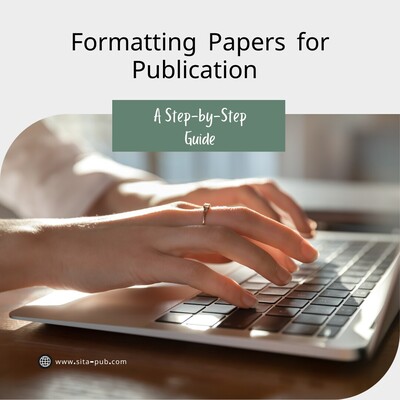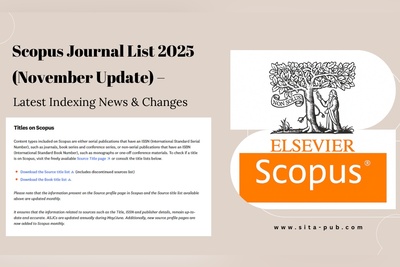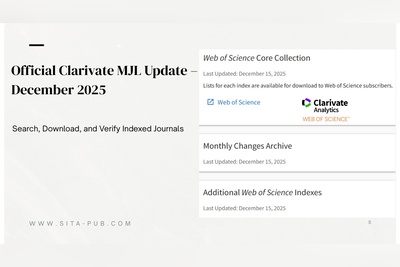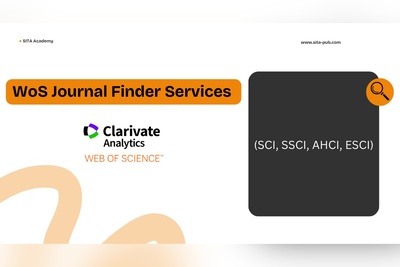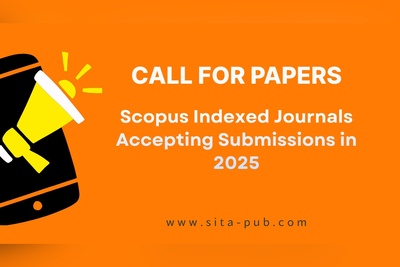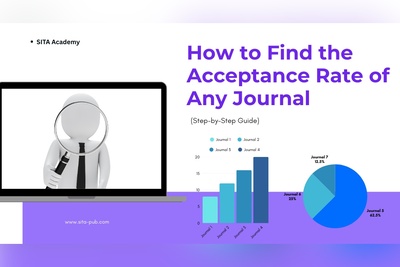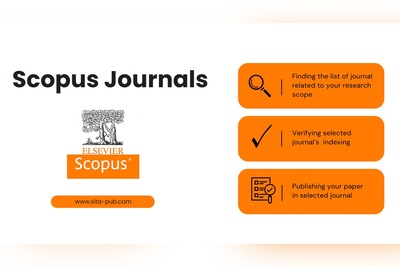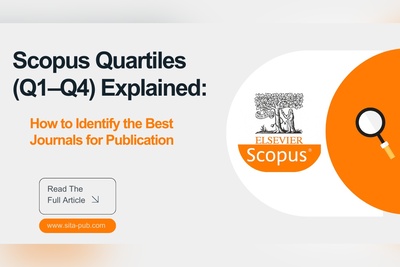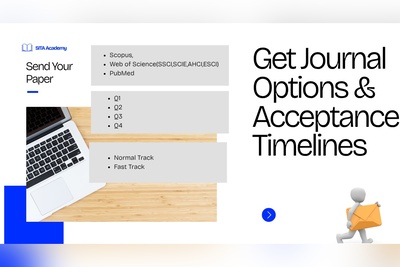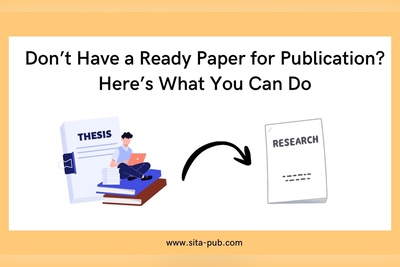Turn Your Thesis into a Scopus-Indexed Article: Here’s How
Have a thesis written in Arabic or another language? Learn how to turn it into a Scopus-indexed English research article.

Have you just completed your thesis and are wondering how to share your research with a wider audience? Turning your thesis into a Scopus-indexed journal article is one of the smartest steps you can take in your academic journey. It doesn’t just improve your academic reputation — it opens doors for future research opportunities, scholarships, academic jobs, and collaborations across the globe.
In this article, we’ll walk you through everything you need to know about converting your thesis into a journal article — specifically, how to publish it in Scopus-indexed journals, which are widely recognized and respected in the global research community.
Thesis vs. Scopus-Indexed Journal Article: What’s the Difference?
Many students assume that submitting their thesis as-is to a journal is enough — but that’s far from the truth. A thesis and a Scopus-indexed article are written for different audiences, follow different formats, and serve different purposes.
Thesis | Scopus-Indexed Article |
Written for academic examiners or defense committee | Written for a global research audience |
Includes broad background, literature, and detailed methodology | Focuses on concise arguments and specific findings |
May be hundreds of pages | Typically 4,000–8,000 words |
Often written in local language | Must be in clear, fluent academic English |
Can include duplicated or exploratory work | Must be original, peer-reviewed, and publication-ready |
If your thesis is written in Arabic or any other language, it must be translated into English before submission to international journals — and this translation should preserve both academic clarity and scientific accuracy.
Why Publish Your Thesis as a Journal Article?
Converting your thesis into a research article — especially one published in a Scopus-indexed journal — offers numerous benefits:

Build Your Academic Reputation
Publishing your first paper is a huge milestone. It puts your name in international databases, shows your contribution to the field, and starts building your academic portfolio.
Improve Career Opportunities
Whether you aim for a PhD, postdoc, academic position, or even a government role, having publications in Scopus-indexed journals significantly strengthens your application.
Global Reach and Recognition
While your thesis may sit in a university library, a Scopus-indexed article is available online to researchers worldwide. Your findings could inspire or support international research.
Translate Local Research to Global Impact
Many excellent theses written in Arabic, French, or other languages go unnoticed due to language barriers. By translating and publishing your findings, you allow your work to benefit the global scientific community.
How to Turn Your Thesis into a Scopus-Indexed Article (Step-by-Step)
Here’s a simplified breakdown of how to extract and convert your thesis into a journal-ready article.

1. Select the Best Parts of Your Thesis
A thesis often includes multiple chapters and sub-studies. Focus on the strongest, most original findings that are relevant and contribute something new to your field.
Each article should cover one specific topic or idea from your thesis — you can publish multiple articles if your thesis has more than one major result.
Tip: Don’t copy and paste your thesis. You need to reframe your content to fit journal style, tone, and length.
2. Translate (If Needed) and Rewrite in Journal Format
If your thesis is written in Arabic or another language, the entire article must be translated into native-level English.
Use professional translation and editing services to ensure fluency
Rewrite your paper using the IMRAD structure (Introduction, Methods, Results, and Discussion)
Remove unnecessary sections like acknowledgements or overly detailed literature reviews
3. Shorten and Focus Your Writing
Journals are not looking for length — they want clarity and contribution. Your article should be:
Concise and to the point (usually 4,000–6,000 words)
Focused on a single research question
Easy for an international audience to understand
4. Ensure Academic Integrity and Ethical Compliance
Ethical considerations are essential when converting a thesis into a paper:
Avoid self-plagiarism: Do not reuse your thesis text verbatim — rewrite in your own words
Disclose that the paper is derived from your thesis in the cover letter
Mention ethical approval (if human/animal subjects are involved)
If co-authors contributed to the thesis, include them properly in the authorship list
Academic honesty is crucial. Journals may reject or retract papers that reuse thesis content without disclosure.
Publishing in Scopus-Indexed Journals: The Process
Publishing in Scopus journals isn’t just about writing — you need to navigate the submission and review process smartly.

Step 1: Journal Selection (Customized for Each Paper)
Even if your thesis is in a specific field like Education or Engineering, each extracted article may suit a different journal depending on the focus.
Use tools like Scopus Journal Finder or SJR (Scimago) to filter by subject, ranking (Q1–Q4), and review time
Check journal guidelines and ensure your topic fits their scope
Matching your paper to the right journal is one of the most critical steps.
Step 2: Plagiarism Check
Before submission, check your article using iThenticate or Turnitin. Even reusing parts of your thesis without paraphrasing can show high similarity scores.
Keep similarity index below 15–20%
Avoid using exact wording from thesis or previous works
Step 3: Format According to Journal Guidelines
Every journal has specific formatting requirements:
Referencing style (APA, Vancouver, etc.)
Section structure
Abstract format
Table and figure placement
Failure to format properly is one of the top reasons for desk rejection.
Step 4: Submit with All Required Documents
Prepare and upload:
Manuscript (formatted)
Cover letter
Plagiarism report
Proof of English editing (if applicable)
Ethics approval (for certain studies)
Missing any of these can delay review or lead to rejection.
Step 5: Wait for Peer Review and Respond Promptly
Scopus journals typically take:
2–6 weeks for initial review
1–2 months total for decisions (depending on journal)
Once you get feedback, revise your paper carefully and respond to all reviewer comments in a polite and professional tone.
Ethical Guidelines When Publishing from a Thesis
Publishing from your thesis is acceptable — but follow these ethical rules:
Do not submit the whole thesis as-is to any journal
Clearly rephrase and restructure content
Avoid duplicate publication of the same findings in multiple journals
Acknowledge your institution or supervisor if required
Inform the journal that the article is derived from your academic thesis
Being transparent protects your reputation and improves acceptance chances.

Turning your thesis into a Scopus-indexed article is more than just publishing — it's a way to amplify the impact of your hard work.
You’ve already done the research. Now it’s time to:
Translate it (if needed)
Reframe it in journal style
Match it with the right journal
Follow formatting and ethical guidelines
Submit with confidence
Let SITA Academy Help You Publish from Your Thesis
At SITA Academy, we’ve helped dozens of graduate students and researchers across the Arab world convert their Arabic theses into Scopus-indexed English articles.
Here’s what we offer:
Professional translation from Arabic to academic English
Article extraction: turning your thesis into multiple publishable articles
Journal matching: finding Scopus journals that suit each article
Formatting according to each journal’s exact guidelines
Plagiarism checking and removal
Native-level English editing
Submission support and follow-ups with the journal
Want to Start Publishing from Your Thesis?
Contact us today via our verified channels and learn how we can help you publish your research in Scopus, SCIE, SSCI, and other reputable journals.
Verified Contact Channels
If you have any questions, inquiries, or would like to learn more about our services, please don't hesitate to reach out to us. Our dedicated team is ready to assist you.
